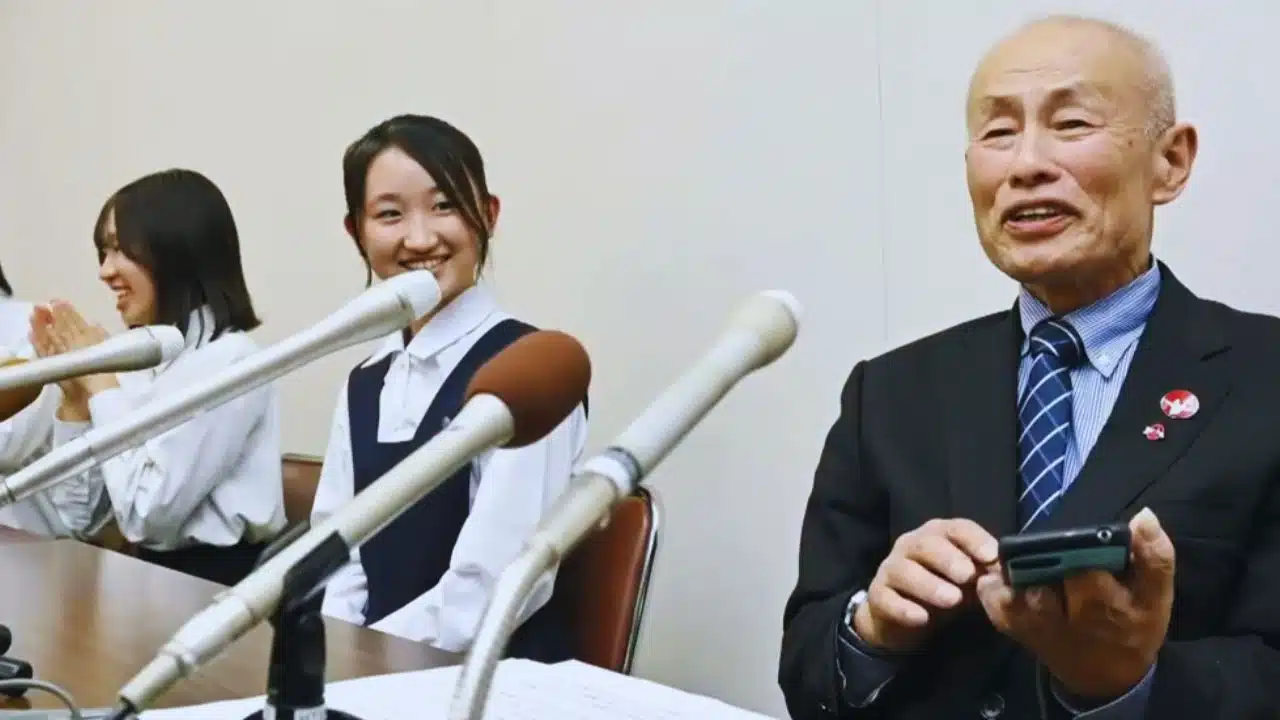The 2024 Nobel Peace Prize has been awarded to Nihon Hidankyo, a Japanese anti-nuclear group consisting of survivors from the atomic bombings of Hiroshima and Nagasaki.
The Norwegian Nobel Committee honored the group for its relentless efforts to advocate for a world free from nuclear weapons, drawing attention to the devastating consequences these weapons have had on humanity.
A Legacy Born From Tragedy
Nihon Hidankyo, also known as Hibakusha, represents those who have experienced firsthand the horrors of nuclear warfare. In August 1945, the United States unleashed atomic bombs on Hiroshima and Nagasaki, marking the unique use of such weapons in an armed conflict.
The bombings claimed approximately 120,000 lives and left survivors suffering from long-term radiation effects. These events forever changed the world’s understanding of warfare, prompting global discussions on nuclear disarmament.
The Norwegian Nobel Committee recognized Nihon Hidankyo “For its efforts to achieve a world free of nuclear weapons and for demonstrating, through witness testimony, that nuclear weapons must never be used again.” In order to stop the use of such devastating weapons in the future, the group has spent decades educating the public about the unimaginable destruction that nuclear bombs cause.
Rising Nuclear Threats in the Modern World
The prize comes at a time when the global nuclear threat is on the rise, with wars in Ukraine and the Middle East heightening tensions. The Nobel Committee highlighted that nuclear powers are modernizing their arsenals, new countries are showing interest in acquiring nuclear capabilities, and threats of nuclear warfare are resurfacing.
In its statement, the committee warned, “At this moment in human history, it is worth reminding ourselves what nuclear weapons are: the most destructive weapons the world has ever seen.
With global tensions escalating, the committee’s decision to honor Nihon Hidankyo serves as a reminder of the catastrophic consequences of nuclear weapons. The award also emphasizes the need for continued efforts toward disarmament, especially as countries like Russia, North Korea, and Iran pose significant nuclear threats.
A Surprising and Symbolic Choice
Given the numerous active conflicts around the globe, the decision to award Nihon Hidankyo was considered unexpected. Geopolitical experts had predicted that organizations involved in resolving these conflicts might win the prize. However, Nihon Hidankyo’s contributions to the ongoing nuclear disarmament movement resonated strongly with the committee.
Accepting the award in Tokyo, the group’s chairman, Toshiyuki Mimaki, drew parallels between the devastation of Hiroshima and Nagasaki and the current conflict in Gaza. “When I saw the children being carried, as they’re covered in blood,” Mimaki said, “it was the same as Japan 80 years ago. The images overlap.”
The Enduring Impact of the Hibakusha Movement
Since its inception, Nihon Hidankyo has dedicated itself to sharing the stories of survivors, bringing to life the horrors of nuclear warfare for future generations.
Survivors recount their experiences of blasts, city devastation, and long-term suffering from radiation exposure, forming the core of the group’s educational campaigns.
The Nobel Committee praised the group for its role in helping the world “describe the indescribable, to think the unthinkable, and to somehow grasp the incomprehensible pain and suffering caused by nuclear weapons.
While 80 years have passed since the atomic bombings, the Hibakusha movement has played a significant role in maintaining the taboo against the use of nuclear weapons.
The committee acknowledged that modern nuclear warheads are far more destructive than the bombs dropped on Japan, warning that the potential for catastrophic destruction remains alarmingly real.
A Growing Nuclear Threat in Today’s World
The Nobel Committee’s decision to honor Nihon Hidankyo is particularly timely. Russian President Vladimir Putin has repeatedly hinted at the possibility of using nuclear weapons in the ongoing conflict with Ukraine.
Meanwhile, North Korea’s nuclear arsenal continues to grow, and tensions remain high between nuclear-armed nations like India, China, and Pakistan. Iran, widely believed to be developing nuclear capabilities, has also been a point of concern in the Middle East.
Long believed to possess nuclear weapons, Israel is currently involved in a conflict with Iran, exacerbating the already volatile region. The committee stressed that the nuclear threat is once again at the forefront of global security concerns.
A Year Marked by Conflict
The 2024 Nobel Peace Prize comes during a year of unprecedented global conflict. Wars in Ukraine, the Middle East, and Sudan, along with numerous civil conflicts, have created a world in turmoil.
Many had expected the prize to go to organizations working directly to resolve these conflicts, but the committee’s choice of Nihon Hidankyo reflects a deeper, long-term concern: the ever-present threat of nuclear warfare.
A journalist noted during the post-announcement session, “I think it’s safe to say you defied most of the expectations this year.”
Previous Nobel Laureates and Their Struggles
Winning the Nobel Peace Prize does not always translate into immediate success. In 2023, the prize was awarded to Iranian activist Narges Mohammadi, who continues to be imprisoned, while the Iranian regime persists in restricting women’s rights and personal freedoms.
Similarly, the 2022 award went to Belarusian activist Ales Bialiatski and Russian and Ukrainian human rights groups, despite the ongoing conflict in Ukraine and the ongoing internal repression in Russia.
Despite the uphill battles, the Nobel Peace Prize serves as a beacon of hope and recognition for those who continue to fight for peace and justice, even in the face of overwhelming challenges.
A Call for Global Disarmament
Nihon Hidankyo’s 2024 Nobel Peace Prize sends a powerful message to the world. As nuclear threats rise and global conflicts intensify, the testimony of survivors from Hiroshima and Nagasaki serves as a poignant reminder of the devastation that nuclear weapons can bring.
Nihon Hidankyo’s commitment to educating the world on the dangers of nuclear weapons remains as vital today as it was decades ago. As nations with nuclear capabilities continue to engage in conflicts, the call for global nuclear disarmament has never been more urgent.





































